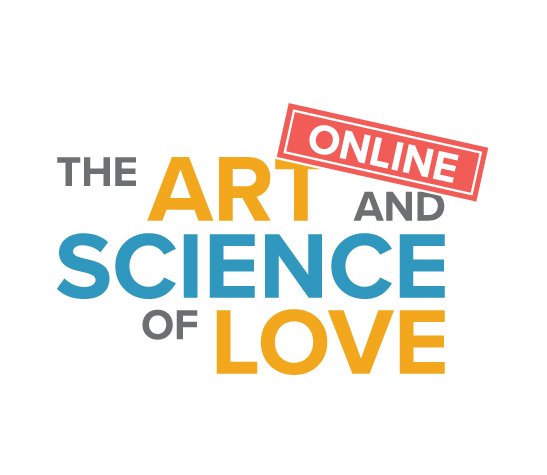Does your effort to support your partner spiral into arguments?
Maybe you can relate to Elena and Tom below.
Elena: (Sighs) Today was… overwhelming. It felt like everything that could go wrong,
did.
Tom: At least it’s over now, right? I’m sure it’ll be better tomorrow.
Elena: (Feeling misunderstood). It’s not just about having a bad day. Today made me
question if I’m even good at what I do.
Tom: You’re overthinking it. You’re great at your job! Why don’t you just relax?
Elena: (Feeling dismissed) I’m trying to express how I feel, and you’re dismissing it as if
it’s nothing!
Tom: (Defensive) I’m not dismissing it, I’m trying to help you move past it.
The conversation escalates, highlighting a core marital problem: their meta-emotion mismatch. Dr. John Gottman and Dr. Julie Gottman found that ‘the [meta-emotional] mismatch alone predicted divorce or stability in the next four years with 80% accuracy.’ Tom and Elena are experiencing a clash between an emotion-attuning style (Elena) and an emotion dismissing style (Tom).
In many heterosexual relationships, according to Dr. Gottman’s research, a prevalent source of conflict is the emotional dismissiveness of husbands towards their wives’ negative emotions, leading to feelings of abandonment and emotional neglect. This pattern is a major contributor to unresolved emotional injuries, which, if not addressed, can erode the relationship. But what exactly is meta-emotion?
Dr. John Gottman, describes it as how we feel about feelings. It encompasses our emotional reactions to our own emotions and those of others, including whether we accept or dismiss them, how we interpret them, and how we respond to them.
The Two Meta-Emotion Styles
Dan Yoshimoto, a former student of Dr. John Gottman, investigated meta-emotion patterns and identified two distinct approaches:
- The attuned pattern, which emphasizes empathy and understanding
- The dismissing pattern, which focuses on logic and action over emotional engagement
These patterns often stem from our upbringing and the emotional culture of our families, shaping how we deal with emotions as adults. An emotion-coaching environment teaches us to value and understand our emotions, whereas a dismissive environment leaves us to focus on logic and actions one can take rather than understand emotions. As seen with Tom and Elena, this mismatch can lead to unhealthy conflict.
Gottman research showed that in close relationships the major incompatibility in marriage is a mismatch in how people view the negative emotions. In my work with marriages, I call this pattern the head vs. heart problem. One partner is trying to connect with their heart by expressing emotions and in reaction, the other partner is trying to solve the problem with their head by using logic or actions.
Consequently, this dynamic leads to both partners feeling misunderstood, escalating conflict. The partner seeking emotional attunement feels emotionally dismissed, whereas the partner favoring a more logical approach feels their intentions are misconstrued.
When Tom perceives Elena’s accusation of dismissal—a tactic he employs in his attempt to provide support—he instinctively defends his actions. This defense only intensifies Elena’s feelings of isolation and neglect. Without effective communication and resolution, the relationship faces significant challenges.
Fixing meta-emotion mismatches
Addressing a meta-emotion mismatch is feasible with the structured approach developed by the
Gottmans.
Step 1: Understanding must always precede action
The initial step involves acknowledging that both approaches, understanding and action
regarding emotions are valid; however, their effectiveness depends on proper timing.
Attuning with each other’s emotional states equips partners with the necessary foundation to
then undertake actions that benefit the relationship mutually.
The best structured approach to do this is using the State of the Union Meeting:
- Understanding Each Other: The First Part of the State of The Union Meeting
- Reaching a Compromise: The Second Part of the State of the Union Meeting
Through the State of the Union, even the most action-oriented partner can learn the value of
understanding before advising, and attuning partners, feeling understood, can take actions. This
can transform conflict into a calm and connective experience for both partners.
Step 2: Create a Shared Emotion Culture In Your Relationship
This step becomes particularly crucial in families, where the emotional dynamics between
parents and children impact the overall family harmony. The Gottman’s suggest learning
emotion coaching.
For the emotion-dismissing partner, learning and practicing emotion coaching not only
enhances trust with their children but also strengthens the bond with their partner, promoting
deeper emotional intimacy.
For the emotion-attuning partner, reframe your partner’s action-orientated attempts as a
strategy to make things better. This validation, paired with the partner working on emotion
coaching can help them lean more into emotions that have been overwhelming in the past.
Step 3: Explore Emotion Upbringing
Addressing meta-emotion mismatches can also be achieved by engaging in discussions about
each partner’s emotional experiences in childhood, including how they were comforted, and
their parents’ reactions to their emotions such as anger, sadness, joy, fear, love.
By understanding each other’s emotional upbringing, it creates empathy and understanding to
do things differently for your marriage.
Step 4: Practice Emotional Attunement and Actions
Practice emotional connection skills such as sharing emotions and listening via ritualized
emotional check-ins such as the Stress-Reducing Conversation and State of the Union to
maintain and strengthen the emotional bond.
The result
After adopting these steps, Tom and Elena’s interactions transformed:
Elena: Today was overwhelming. Everything seemed to go wrong.
Tom: That sounds tough. Do you want to talk about it?
Elena: Yes, that would be so helpful..
This shift from conflict to connection demonstrates the power of understanding and
addressing meta-emotion mismatches. By fostering an environment of emotional
attunement and then action, couples can navigate challenges more effectively, laying a
foundation for a resilient, connected, and respectful partnership.








